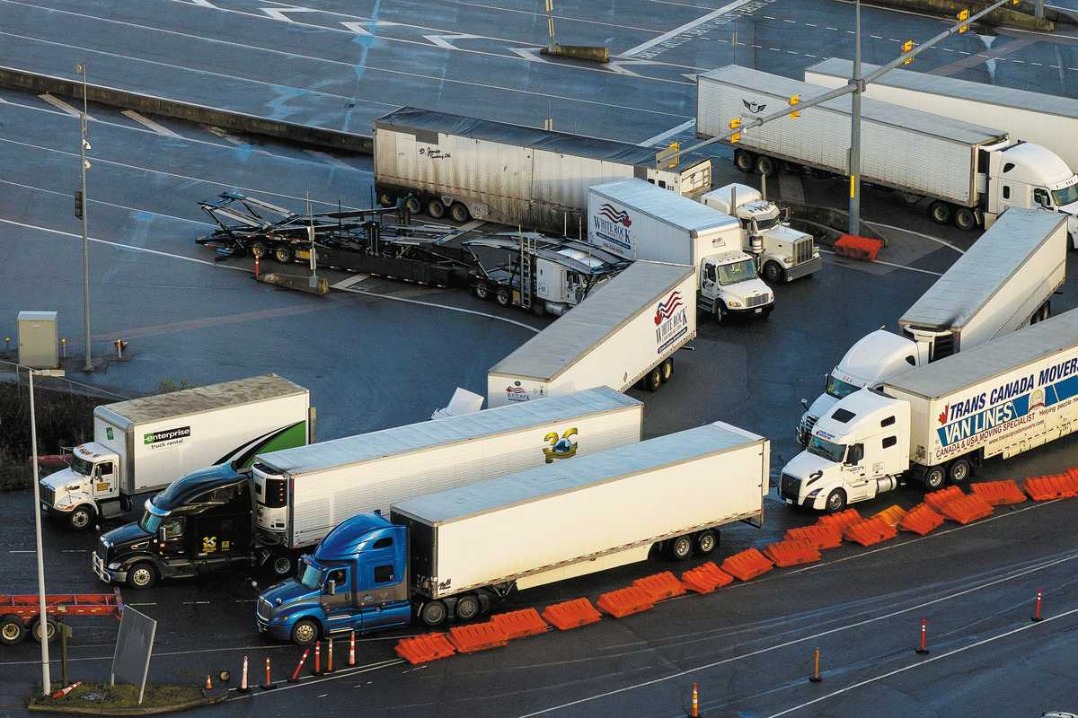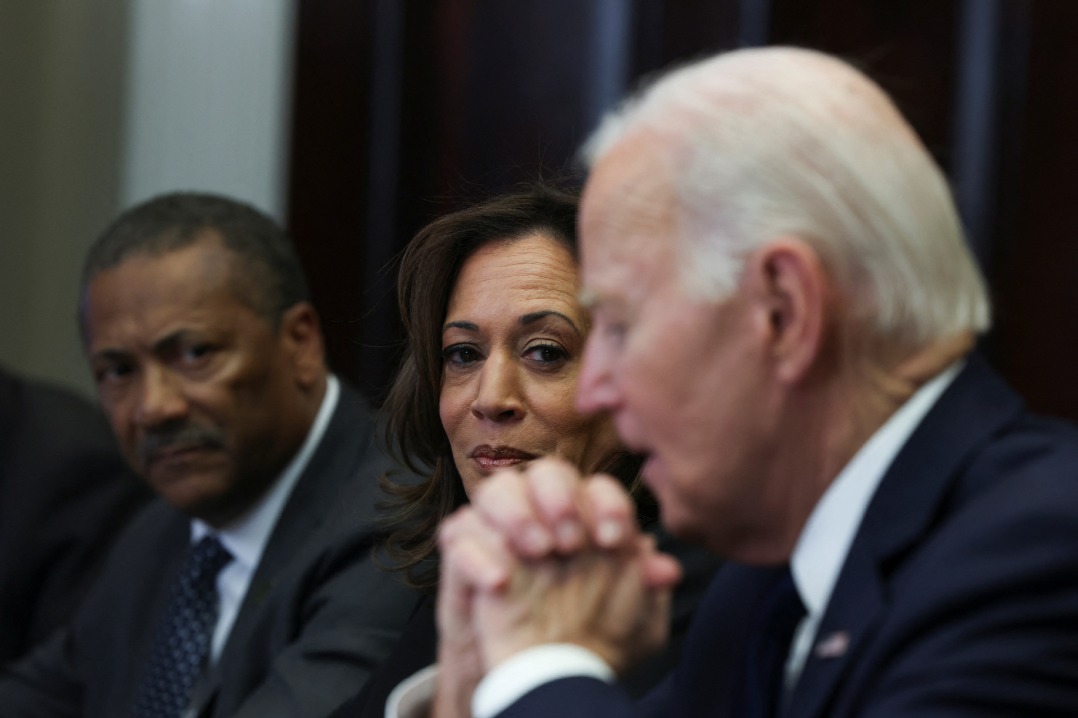Trump's deplorable vision for US steel industry
By Chen Weihua | China Daily USA | Updated: 2018-03-05 05:56
When US President Donald Trump met executives from US steel and aluminum industries last Thursday to announce his tariffs on imports, he said "we're going to build our steel industry back and we're going to build our aluminum industry back".
"I remember when I was growing up, US Steel, that was the ultimate company. And today, you have so many closed plants," said Trump, with David Burritt, president and chief executive officer of the US Steel sitting next to him.
Trump was right. US Steel, headquartered in Pittsburgh, Pennsylvania, was once the largest steel producer and the largest corporation in the world. Its production peaked at more than 35 million tons in 1953, when Trump was 7 years old, and its employment was the greatest in 1943 with 340,000 people.
Today, the total employment in the US steel industry is only 140,000 and US Steel had 29,000 employees at the end of 2017 according to its annual reports.
The company ranked only 24thin the world in 2016 by steel production. Of the total 39 steel companies in the world that had output over 10 million tons, 20 of them are in the Chinese mainland. Nucor Corp, the other US steel producer on the list, ranked 12th.
China has leapfrogged to be the world's largest steel producer. In 2017, China produced 832 million tons of steel, followed by 169 million tons in the European Union, 105 million tons in Japan, 101 million tons in India and 82 million tons in the US, according to the World Steel Association. Back in the 1980 when the US produced 101 million tons of crude steel, China's output was 37 million tons.
However, China accounts for about 2 percent of US steel imports and is not among the top 10 steel exporters to the US. Some 80-90 percent of China's steel output is for domestic consumption. Its largest export markets are South Korea, Vietnam, the Philippines, Thailand, Indonesia, India and Pakistan. That is why Trump tariffs do not make much sense when he heaped blame mostly on China.
The decline of the US steel industry is expected according to basic economics. With more automation, the steel industry requires fewer people to produce the same output.
On the other hand, the US, as a high income nation, is no longer competitive in steel manufacturing. PayScale lists US Steel median salaries at $72,000 for a maintenance manager and $68,000 for an operations manager -- astronomical figures compared with their peers in China and India.
Indeed, with the rising labor costs in China, especially the coastal regions, many manufacturing jobs have been either relocated to the hinterland or countries such as Vietnam, Bangladesh and Ethiopia where labor costs are lower, or more competitive.
China, unlike the Trump administration, has not blamed other countries. Instead, it celebrates the moving up in the global supply chain.
China has embraced automation enthusiastically. The country is installing more industrial robots than any other countries, accounting a third of the world's total in 2016. Artificial intelligence, unmanned cars, 3D printing and renewable energy are just some of the new industries China is trying to make major headway. The fact that one third of the 4,500 exhibitors at the 2018 Consumer Electronics Show in Las Vegas in January came from China reflects that ambition.
China has been closing down its steel mills, partly to cut overcapacity but more importantly to fight air pollution. Steel mills are largely responsible for severe air pollution in Hebei province, next to Beijing.
This reminds me of a chat sometime ago with a cab driver in Pittsburgh. He was very proud about how the city's air quality has improved from the days when it was the US steel capital.
Pittsburgh still has some air pollution problems, but the city has successfully shifted to high technology, robotics, healthcare, nuclear engineering, tourism, biomedical technology, finance, education and services. Google, Apple, Facebook, Uber and IBM are some of the 1,600 technology firms that contribute to the local economy.
Under Trump's vision, Pittsburgh should be revived as a place surrounded by steel mills, reminiscent of Trump's childhood years.
"The air pollution is so thick you can barely make out the skyscrapers Downtown. Smoke billows from old factories, blotting out the sun," as the Pittsburgh City Paper recalled the old days.
Trump could easily achieve that by sending a mission to Hebei to relocate some of the mills back to Pittsburgh. He could do so without all the trouble of imposing tariffs.
Contact the writer at chenweihua@chinadailyusa.com
























